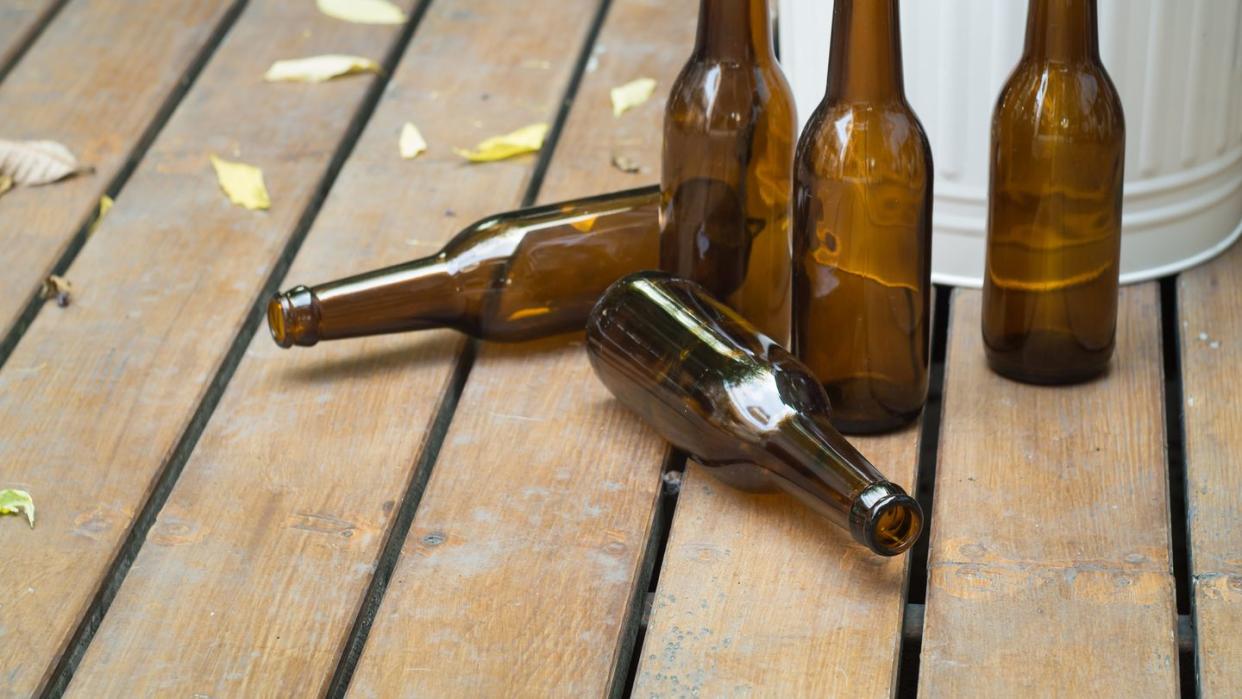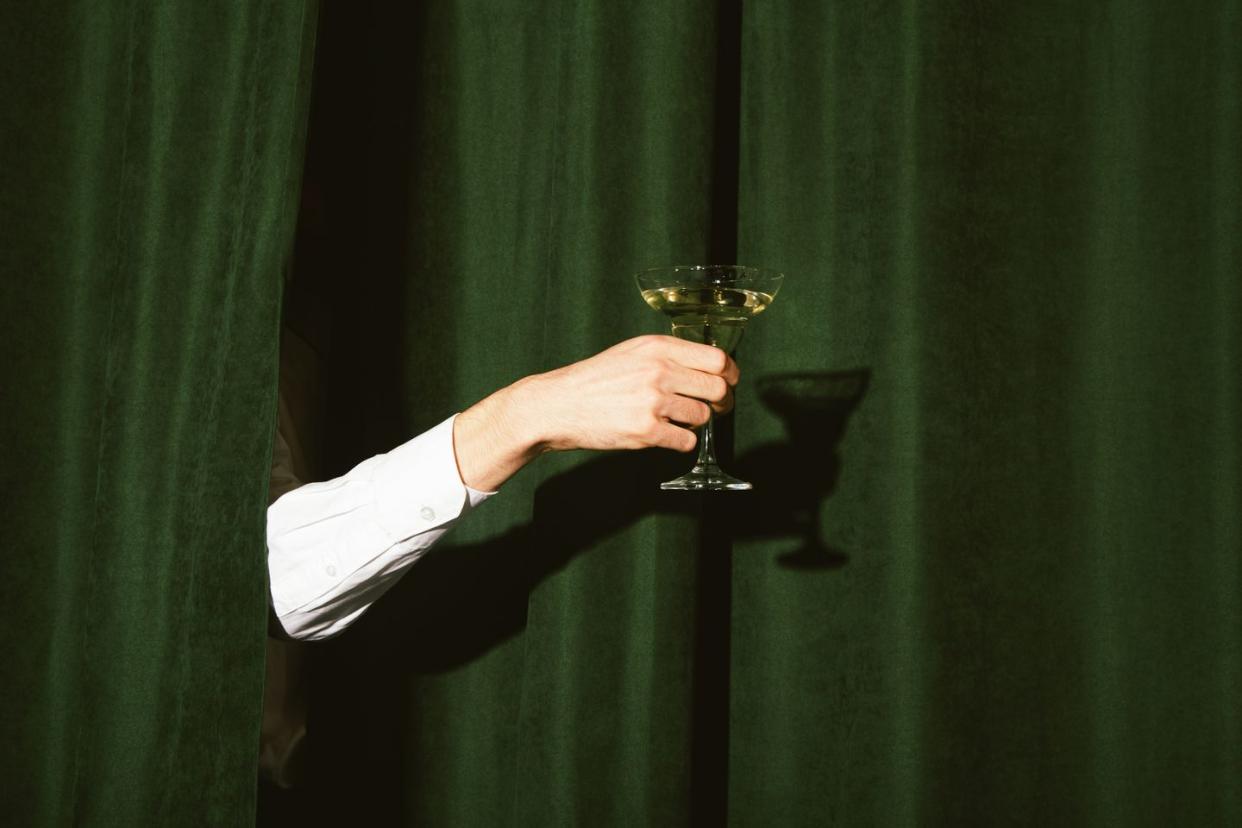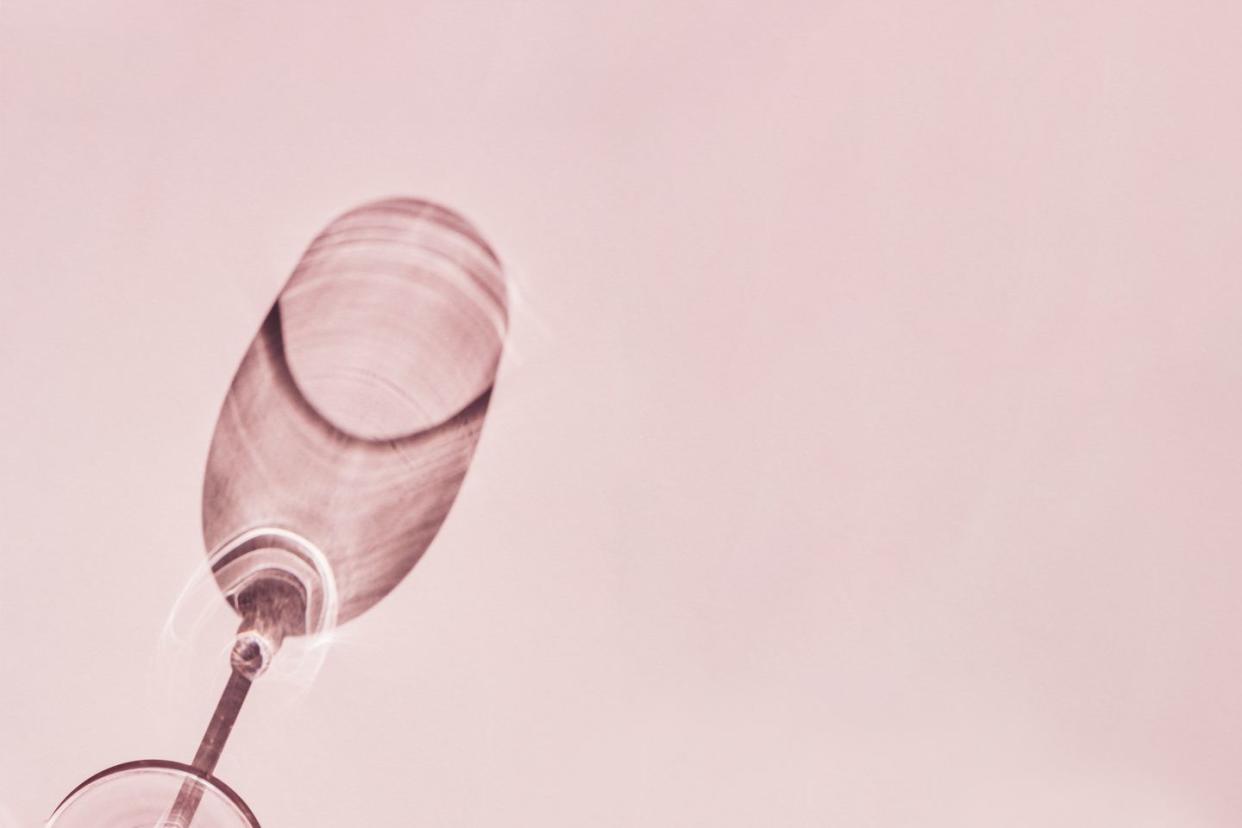Here’s Why You’re So Anxious When You’re Hungover

"Hearst Magazines and Yahoo may earn commission or revenue on some items through these links."
There are a lot of myths surrounding hangovers and how to cure them. You shouldn’t blame your headache on mixing liquors. You can’t prevent hangovers by pregaming with a shot of olive oil. But there’s one thing about a hangover that is actually very real: hangxiety.
A portmanteau of hangover and anxiety, the word hangxiety is colloquially used to describe the feelings of dread, worry, and shame that can accompany a hangover. And if you’ve ever overindulged, you're likely familiar with the experience.
Have you ever felt on edge and unable to relax when hungover? Stressfully fixated on what you said and did the night before? Felt a sense of impending doom? These are some of many symptoms that can happen after drinking. Researchers estimate that up to 22% of people who drink experience hangxiety to varying degrees of severity.
But what exactly causes it? We’re here to explain everything you need to know about hangxiety, from what happens on the chemical level to how you can avoid it. So next time you decide to drink, you don’t have to sign up for any unwanted stress.
What Causes Hangxiety?

Just like with the physical hangover symptoms, anxiety can be caused by drinking alcohol. The intensity of your anxiety depends on a lot of factors, but the way alcohol is metabolized by the body is stress-inducing by nature.
When you indulge in a cocktail, alcohol initially causes feelings of relaxation by mimicking a neurotransmitter called gamma-animobuytric acid, or GABA. GABA slows certain brain functions to reduce feelings of stress and anxiety.
Alcohol effectively tricks your body into stopping GABA production and increasing the amount of glutamates in the brain to restore balance, which will ultimately make you more anxious and restless. The effects of this usually begin to manifest in the middle of the night, which is why you may wake up at three in the morning in a state of panic.
Hangxiety symptoms are usually milder forms of the ones someone feels while going through clinical alcohol withdrawal, which is why many experts describe the experience as a "mini withdrawal."
Some individuals are more susceptible to hangxiety, primarily those who already experience anxiety in general.
How Can You Prevent Hangxiety?

There’s no guaranteed method or trick that will nip feelings of hangxiety in the bud, but there are some short-term behaviors that can minimize how severe it is. In short: the best way to avoid hangxiety is by drinking less and taking care of yourself.
Stay Hydrated And Fed
Physical symptoms of a hangover are typically more severe when you’re dehydrated. And because alcohol is a diuretic, it’s important to drink plenty of water before, during, and after partying to replenish what’s lost. Experts suggest alternating between drinking alcohol and water throughout the night. Consuming liquids with electrolytes is also recommended.
Alcohol also metabolizes more slowly when you have food in your stomach. This means the side effects are less intense than when you drink on an empty stomach. If you want to avoid hangxiety in the morning, eat something nutritious and substantial before drinking.
Monitor Your Alcohol Consumption
A lot of other factors play a role with hangovers, but it all comes back to the amount of alcohol you drink. Monitoring and pacing your liquor consumption can both prevent binge drinking—and all of the symptoms that come with it.
Avoid Stimulants
Stimulants, including caffeine and nicotine, often cause heightened feelings of anxiety. You may think they will help take the edge off, but it will actually make you feel worse. Stay away from the coffee and drink water instead.
Rest
Another source of anxiety is simply being tired. Alcohol might make you go to sleep more easily, but research indicates that it lessens the quality of your sleep. And you’re likely getting fewer hours in bed if you stayed out late the night before. So go ahead and hit the snooze button.
Practicing safe drinking habits certainly can reduce feelings of stress the next morning, but it’s not a cure-all. Hangxiety does not exist in a booze bubble; it’s often an extension of anxiety you feel more generally.
The relationship between alcohol and anxiety can be a cyclical one. Drinking is a common coping mechanism among those who struggle with mental health, but it can also exacerbate existing feelings of anxiety. If you experience chronic hangxiety, it’s worth consulting a mental health professional.
You Might Also Like
